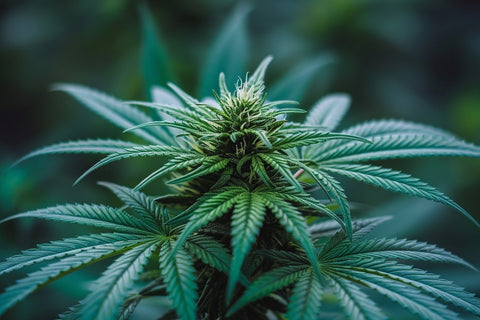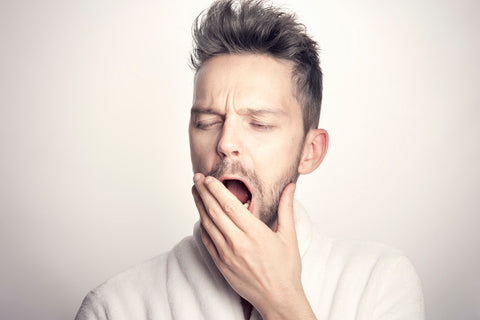Introduction to CBD and its popular effects
Cannabidiol (CBD) is a naturally occurring compound found in the cannabis plant. Unlike its more famous cousin THC, CBD does not produce a high or intoxication but has various other effects that have attracted considerable interest from both the medical community and everyday consumers. One of the most frequently discussed effects of CBD is its potential to induce sleepiness or sedation, making it a topic of numerous discussions and investigations.
The science behind CBD and sleep
The relationship between CBD and sleep involves several biological pathways, but central to its effect is the endocannabinoid system (ECS). This system plays a crucial role in regulating many bodily functions, including mood, appetite, and the sleep-wake cycle. CBD interacts with this system by influencing receptors that can alter neurotransmitter releases, thus potentially affecting one's sleep patterns.
Several research studies have been conducted to investigate how CBD may facilitate better sleep. For instance, CBD has been shown to reduce anxiety and pain, two major issues that often impair sleep quality and prevent deep sleep stages essential for feeling rested. By mitigating these conditions, CBD may help users achieve quicker and more sustained sleep.
CBD's impact on anxiety and stress
Anxiety often directly interferes with sleep by activating the body’s sympathetic nervous system, responsible for the ‘fight-or-flight’ response. This activation results in increased heart rate, elevated blood pressure, and heightened senses – all of which are counterintuitive to falling asleep. Various studies have highlighted CBD’s calming properties in the nervous system. In particular, an investigation into CBD’s effects showed a substantial decrease in anxiety levels among participants, correlating with improved sleep scores as reported by the subjects themselves.
Understanding the dosage: How much CBD is effective?
Finding the right CBD dosage is critical when using it to treat sleep problems. Dosages can vary widely depending on the individual's body weight, metabolism, and the severity of the symptoms they are experiencing. Lower doses of CBD can sometimes result in heightened alertness, while higher dosages generally contribute to greater sedation. The optimal balance usually requires some trial and error combined with professional advice from healthcare providers.
To give practical examples, small-scale clinical trials suggest starting with a low dose and gradually increasing until you find a level that provides the desired sleep benefits without unwanted side effects. Typically, dosages ranging from 25mg to 1500mg per day may be considered, based on the existing scientific literature and user reports.
Comparative studies: CBD versus traditional sleep medications
Many individuals turn to CBD as an alternative to conventional sleep aids because it comes with fewer reported side effects. Standard sleep medications often involve significant risks such as dependency and withdrawal phenomena, not commonly associated with CBD. Several comparative analyses suggest that while traditional medications might be more potent in inducing immediate sleep, CBD offers a potentially safer profile suitable for long-term use.
Furthermore, unlike many sleep medications, which typically force the brain into states of reduced consciousness, CBD appears to support natural sleep processes according to preliminary EEG studies that measure brain activity patterns during rest.
Placebo-controlled trials investigating CBD’s efficacy
In scientifically controlled settings, placebo trials are invaluable for verifying the effectiveness of a substance like CBD. These trials help discern whether the sleep-inducing effects of CBD are genuine or instead a result of psychological expectations held by the user. Analysis from multiple placebo-controlled trials indicates that CBD consistently performs better than placebo in improving the length and quality of sleep among test subjects.
User experiences and personal anecdotes
Beyond scientific research, personal stories and anecdotal evidence form a significant part of understanding CBD's effects on sleep. Many users report an overall improvement in sleep quality without the grogginess often associated with chemical-based sleep aids. Comparisons made include:
- Smoother transition to sleep
- More restful nights
- Increased daytime alertness and functionality
These claims offer real-life insights into the potential benefits of CBD as a sleep aid, adding a layer of qualitative data to the quantitative findings from formal studies.
Potential concerns and advisories
While CBD is generally well-tolerated, it can interact with other medications which may increase the risk of side effects. As with any supplement or treatment option, users should consult healthcare professionals before beginning a CBD regimen, especially if they are currently taking other medications.
Note: Though research is promising, CBD's varying effects mean what works for one person may not work for another. This variabilty underscores the need for further, personalized exploration into its usage.
Final words
This detailed analysis has explored why CBD might make you sleepy, from its interaction with fundamental biological systems to user-reported outcomes and scientifically-backed investigations. While we refrained from concluding remarks here...



